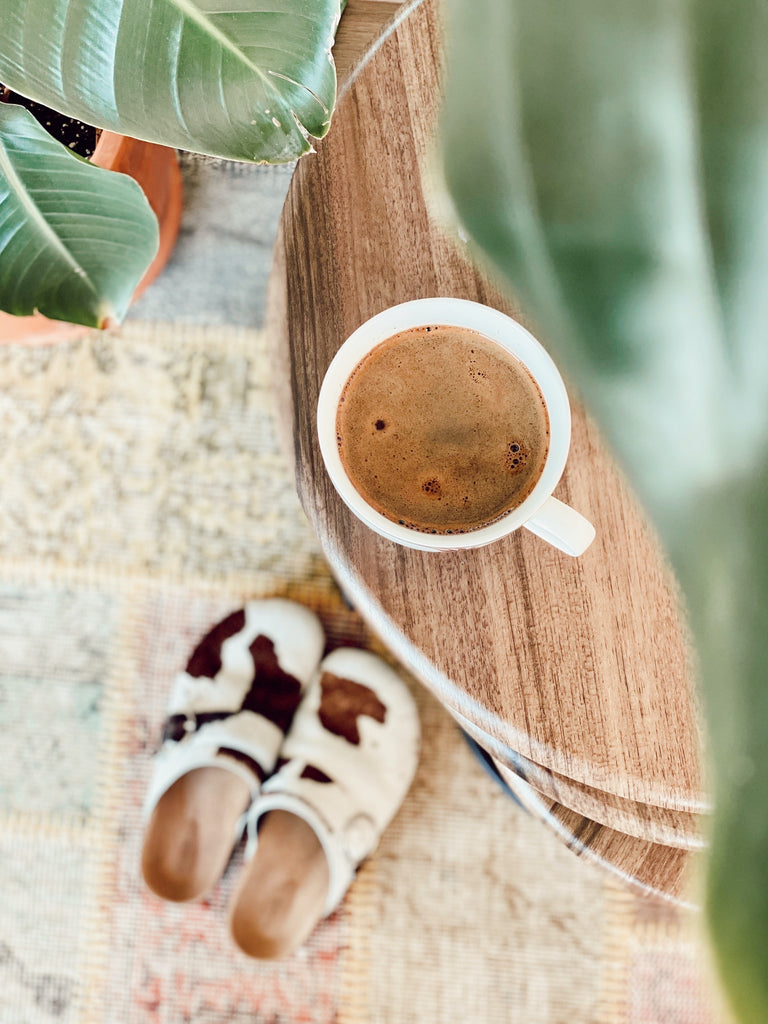August 02, 2022
Jamaican Blue Mountain Coffee ; don't settle on imitations !

We are following up on last week’s travel blog on Jamaica , and their special coffee. .Who doesn't love coffee? It's the best part of waking up in the morning, and it's perfect for an afternoon pick-me-up. But have you ever had Jamaican coffee? It's definitely a unique experience. The coffee beans are grown in the Blue Mountains of Jamaica, and the resulting brew is smooth, slightly sweet, and delicate .As a coffee lover, I was excited to hear that Jamaican coffee is some of the best in the world. I had to try it out for myself, and it definitely didn't disappoint.The flavor is rich and earthy, with a slight sweetness that makes it irresistible. If you're looking for a new coffee to love, be sure to add Jamaican coffee to your list. You won't regret it!
We are willing to pay more for certain items because we believe that a higher price tag indicates a higher quality product. The way things are supposed to work, at least. Ethiopia's Yirgacheffe coffee and Jamaica's Blue Mountain coffee are both well-known coffees in the world of coffee. The problem is that when something is highly regarded, someone will try to take advantage of the buyers. Blue Mountain coffee, like Kobe beef, is the subject of a slew of ripoffs on the dark side of the internet. You'll understand why this floral, nutty, smooth, and delicious coffee is so sought after once you try real Jamaican Blue Mountain coffee.
You are probably asking yourself what is so special about Blue Mountain coffee . That's a really good one. Why would you pay $50 -$60 for a pound of beans? I admire a well-informed consumer, which is why I intend to assist you in becoming one! There are many varieties of Blue Mountain Coffee. Located in Jamaica's Blue Mountains, it's grown there. Even though you might have figured out the last bit of information on your own, it goes much deeper than that. Portland, St. Andrew, St. Thomas, and St. Mary are the only parishes from which the beans can be gathered.
To qualify as Blue Mountain Coffee, the beans in those parishes must be grown at an altitude between 3,000 and 5,500 feet above sea level. You've probably already figured out the significance of altitude in the coffee-growing process. It has less to do with the'magic' of being nearer to heaven and more to do with the harsher environment. Plants are less able to grow at that altitude, which reduces the risk of disease.
Pressure is what seals the deal with high altitude beans, just as it is with diamonds, hydraulics, and me when a deadline approaches. They become harder and denser due to a lack of water, but their flavours are given more time to develop because of the complex sugars they have access to up there. Other beans have been grown at higher altitudes than that, as well. What happened?
The harsh climate and high elevation of the Blue Mountains contribute to the exceptional quality of Blue Mountain coffee. Volcanic soil is covered in mist and touches the sky, fostering a unique drinking experience. These coffee plants must ripen for a total of 10 months, which is twice as long as it normally takes.
This coffee is a true gem to the Jamaicans and they take great care to make it shine, which shows how well they know how to make the most of what they have. Following the time-consuming picking process is a thorough examination. Blue Mountain Coffee can only be considered if the beans are in perfect condition. Rather than hand-picking the best beans, most roasters rely on machines to do so.
Hand-separated beans are inspected for flaws like being too large or too small before being packaged. After that, any flaws, such as those caused by the coffee borer beetle, are sorted out. Only beans that are perfectly whole and free of any blemishes make it to the top of the pile.
Upon roasting, the Coffee Industry Board or Jamaica must ratify the beans. In fact, there is a Jamaica Coffee Industry Board (JCIB), a panel of experts who have never been so delighted to learn that this beautiful, caffeinated beverage has a panel of judges. For the benefit of all coffee connoisseurs, the JCIB sets the rules and regulations, inspects the beans green and roasted, and then blind taste tests the coffee. Detailed forms about the coffee are filled out, and then they decide if the coffee is worthy of the Blue Mountain seal. It's not as if I'm making a simile here.
Whatever you do, please keep away from blends . When I visited Hawaii I was surprised with stores offering Kona blends. Same goes for any type of coffee blends and especially for Blue Mountain which has such a delicate flavour . Stick to 100 % from a reputable seller . This is not time to look for a bargain !
The combination of rich volcanic soil and ideal climate create a cup of coffee that is unparalleled in taste.
Blue Mountain coffee is a unique and delicious treat that can be enjoyed by everyone.
The popularity of Jamaican Blue Mountain coffee is due to the unique terroir and perfect growing conditions on the island. Blue Mountain coffee beans are hand-picked and then sun dried, which gives the beans their distinctive flavor. With its intense flavor and rich aroma, this coffee is sure to please any palate. Jamaican Blue Mountain coffee can be expensive, but it is worth the price for a truly luxurious cup of coffee.If you’ve never had the pleasure of trying Blue Mountain coffee before, we highly recommend you do so today. You won’t regret it!
We are willing to pay more for certain items because we believe that a higher price tag indicates a higher quality product. The way things are supposed to work, at least. Ethiopia's Yirgacheffe coffee and Jamaica's Blue Mountain coffee are both well-known coffees in the world of coffee. The problem is that when something is highly regarded, someone will try to take advantage of the buyers. Blue Mountain coffee, like Kobe beef, is the subject of a slew of ripoffs on the dark side of the internet. You'll understand why this floral, nutty, smooth, and delicious coffee is so sought after once you try real Jamaican Blue Mountain coffee.
You are probably asking yourself what is so special about Blue Mountain coffee . That's a really good one. Why would you pay $50 -$60 for a pound of beans? I admire a well-informed consumer, which is why I intend to assist you in becoming one! There are many varieties of Blue Mountain Coffee. Located in Jamaica's Blue Mountains, it's grown there. Even though you might have figured out the last bit of information on your own, it goes much deeper than that. Portland, St. Andrew, St. Thomas, and St. Mary are the only parishes from which the beans can be gathered.
To qualify as Blue Mountain Coffee, the beans in those parishes must be grown at an altitude between 3,000 and 5,500 feet above sea level. You've probably already figured out the significance of altitude in the coffee-growing process. It has less to do with the'magic' of being nearer to heaven and more to do with the harsher environment. Plants are less able to grow at that altitude, which reduces the risk of disease.
Pressure is what seals the deal with high altitude beans, just as it is with diamonds, hydraulics, and me when a deadline approaches. They become harder and denser due to a lack of water, but their flavours are given more time to develop because of the complex sugars they have access to up there. Other beans have been grown at higher altitudes than that, as well. What happened?
The harsh climate and high elevation of the Blue Mountains contribute to the exceptional quality of Blue Mountain coffee. Volcanic soil is covered in mist and touches the sky, fostering a unique drinking experience. These coffee plants must ripen for a total of 10 months, which is twice as long as it normally takes.
This coffee is a true gem to the Jamaicans and they take great care to make it shine, which shows how well they know how to make the most of what they have. Following the time-consuming picking process is a thorough examination. Blue Mountain Coffee can only be considered if the beans are in perfect condition. Rather than hand-picking the best beans, most roasters rely on machines to do so.
Hand-separated beans are inspected for flaws like being too large or too small before being packaged. After that, any flaws, such as those caused by the coffee borer beetle, are sorted out. Only beans that are perfectly whole and free of any blemishes make it to the top of the pile.
Upon roasting, the Coffee Industry Board or Jamaica must ratify the beans. In fact, there is a Jamaica Coffee Industry Board (JCIB), a panel of experts who have never been so delighted to learn that this beautiful, caffeinated beverage has a panel of judges. For the benefit of all coffee connoisseurs, the JCIB sets the rules and regulations, inspects the beans green and roasted, and then blind taste tests the coffee. Detailed forms about the coffee are filled out, and then they decide if the coffee is worthy of the Blue Mountain seal. It's not as if I'm making a simile here.
Whatever you do, please keep away from blends . When I visited Hawaii I was surprised with stores offering Kona blends. Same goes for any type of coffee blends and especially for Blue Mountain which has such a delicate flavour . Stick to 100 % from a reputable seller . This is not time to look for a bargain !
The combination of rich volcanic soil and ideal climate create a cup of coffee that is unparalleled in taste.
Blue Mountain coffee is a unique and delicious treat that can be enjoyed by everyone.
The popularity of Jamaican Blue Mountain coffee is due to the unique terroir and perfect growing conditions on the island. Blue Mountain coffee beans are hand-picked and then sun dried, which gives the beans their distinctive flavor. With its intense flavor and rich aroma, this coffee is sure to please any palate. Jamaican Blue Mountain coffee can be expensive, but it is worth the price for a truly luxurious cup of coffee.If you’ve never had the pleasure of trying Blue Mountain coffee before, we highly recommend you do so today. You won’t regret it!

I just got back from Jamaica from a cruise and bought a bag of their blue mountain coffee. To my surprise it look like dirt black and had dirt like residue at bottom of cup. It didn’t taste that good. Maybe it wasn’t authentic. Riddim Blue was the brand.